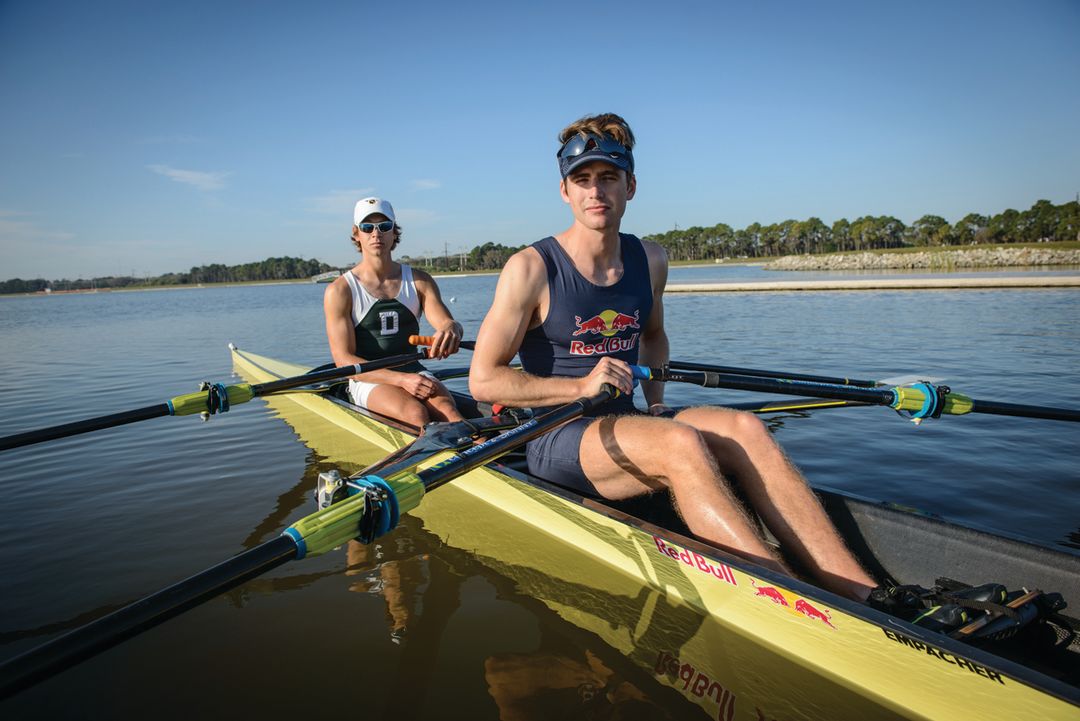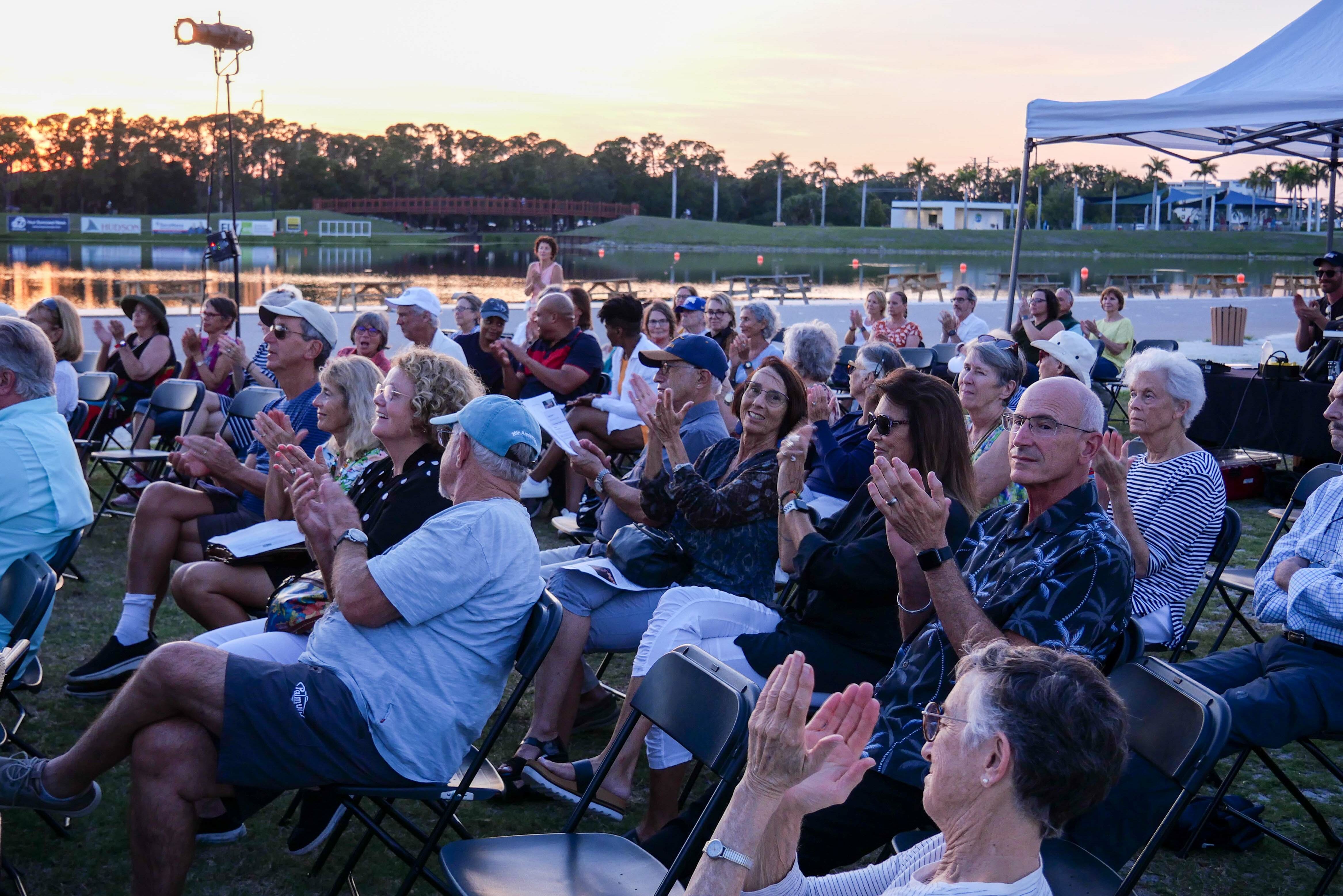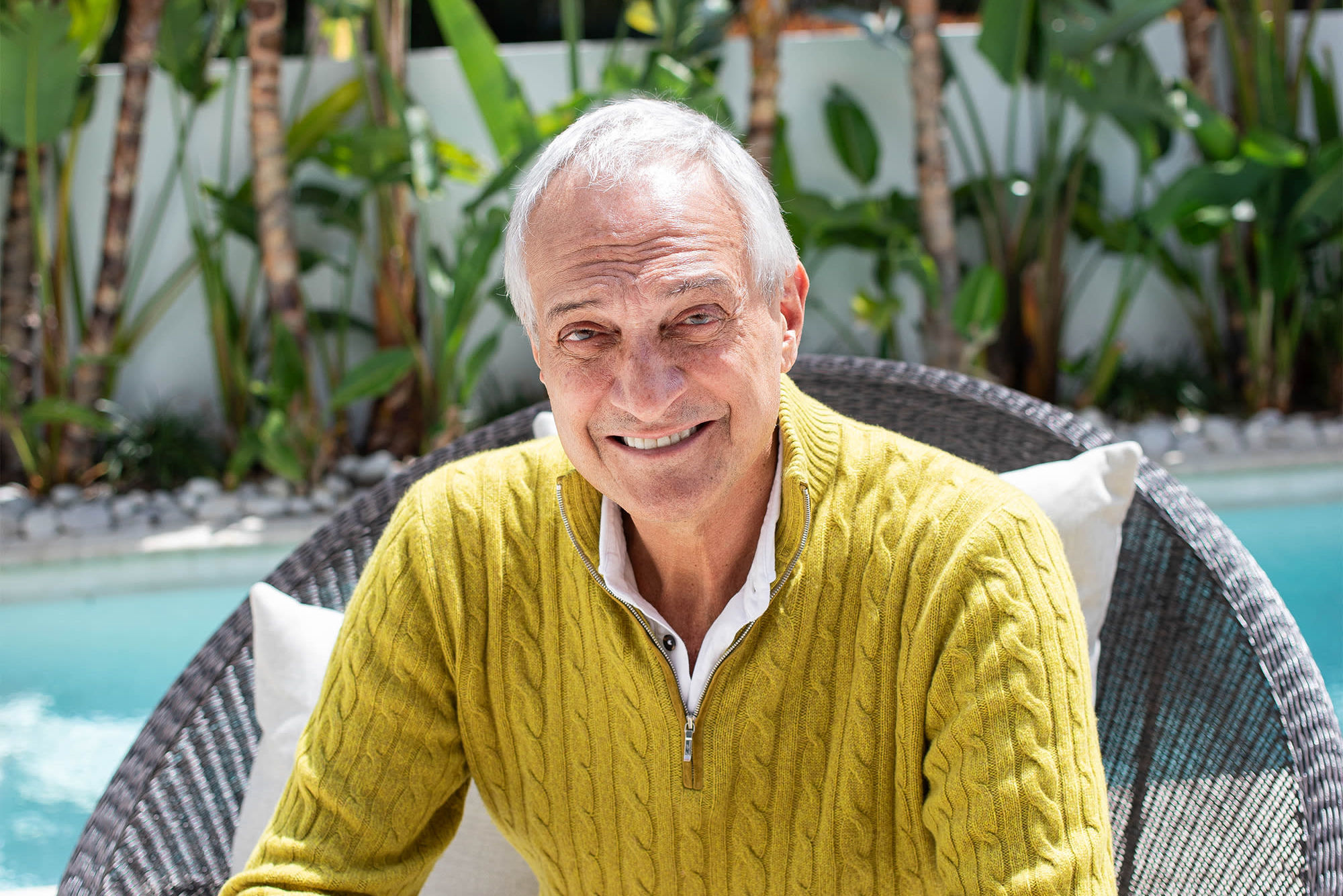Sarasota Hosts the 2016 Olympic Rowing Trials

Andrew Campbell and Josh Konieczney
Image: Chris Lake
Starting April 18, 120 of the country’s most elite athletes—some with Olympic experience already—will descend on Benderson Park to compete for a spot on the 2016 U.S. Summer Olympic rowing team, which is headed to Brazil this summer.
“Right now, these trials are our Olympics,” says Andrew Campbell, 24, a former Harvard rower who competes in double sculls with his rowing partner, Josh Konieczney. The two, who have been training for years and are based in Boston, came to Sarasota in January and rowed about 25 miles a day, supplemented by competitive interval training and weightlifting. “We aren’t thinking about anything afterwards. We need a standout performance here to even make it to Rio,” says Campbell.
Perhaps the most famous competitor here will be 30-year-old Gevvie Stone, who came in seventh place in the single sculls at the 2012 Olympics in London. “Win, and you’re headed to Rio,” she says. “Anything but win, and the next opportunity is in four years. I don’t think I’ll be competing at the elite level in four years, so this Olympic Trials carries that much more weight.”
The trials will determine the American competitors for seven of the 14 rowing events in the Olympics—primarily the one- and two-person events. (Rowers for the larger boats are selected from extended preparatory camps.) It’s a big deal for Benderson, which is also hosting the 2017 World Rowing Championships. “The facility is world-class,” says Curtis Jordan, the high-performance director for the U.S. Rowing Association. “It’s one of the best venues I’ve seen in 40 years of doing this.”
The spacious, 10-lane, 2,000-meter Benderson course is separated from warmup areas by wave attenuators, which, along with the overall size and depth of the water, help minimize wake. Less wake means a fairer race. But the park’s strengths include more than the course. “Each facility has its pluses and minuses,” says Jordan. At Benderson, “It’s the thoughtfulness of how everything’s integrated that’s unique.”
During the trials, spectators will be able to follow the action on a jumbotron; NBC will also be on hand producing a nationwide broadcast. Those who qualify will begin their Olympic competition in Rio on Aug. 6. But, Campbell reiterates, “We’ll think about next steps when the time comes.”



